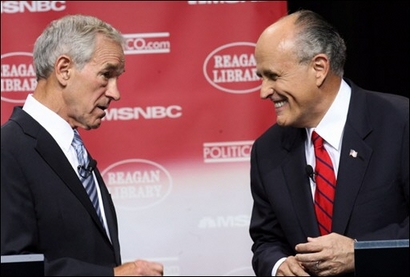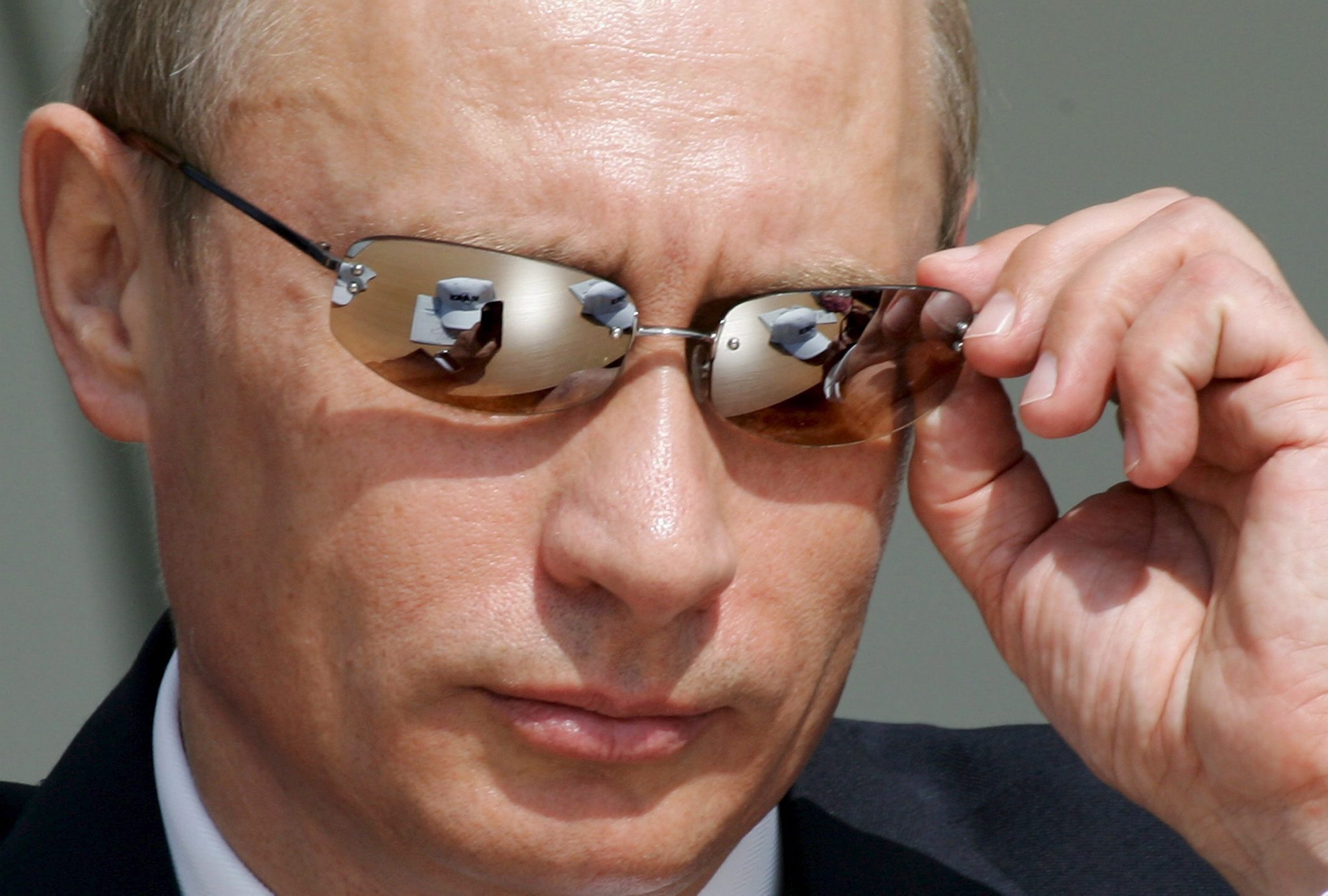Without Ron Paul, there would be no meaningful foreign-policy debate inside the Republican Party.
Videos by Rare
If Paul hadn’t run for president as a Republican in 2008 and 2012, there would likely be no Rand Paul, no Justin Amash, no Thomas Massie in Congress today, and fewer “liberty” organizations with significant grassroots support.
Without Paul’s twelve terms as a Republican congressman, we would have to go back a long way—perhaps as far as Robert Taft—to find an influential conservative politician who opposed the warfare state as vigorously as the welfare state.
Millions of Americans would still identify GOP foreign policy not with “Don’t drone me bro” or anti-interventionist “wacko birds” but with Bush-Cheney, the Iraq war, John McCain, and Lindsey Graham.
Good luck selling the latter brand to younger voters. Or much of the rest of the electorate—in 2013, a Pew poll found most Americans wanted the U.S. to “mind its own business” internationally.
As a voice for peace and liberty, the good doctor has often been right where most of his peers were wrong. I’m not sure his USA Today op-ed on Crimea is one of those times, however. Paul asks of the Russian incursion into Ukraine, “What’s the big deal?”
Paul’s think tank took it a step further with a piece that seems to question whether there was any Russian military invasion at all. “If it had happened earlier this month in Crimea would we not have video?” asked the executive director of the Ron Paul Institute for Peace and Prosperity. “Everyone has cell phones these days.”
Alleged irregularities in the 93 percent vote for Crimean independence—pretty standard fare for autocratic governments—were dismissed as a “pretty wild conspiracy theory.”
Perhaps an even better example is Russia Today, a network that is so good at exposing American civil liberties violations—and so embarrassing in its propagandistic defenses of Russian government behavior.
Do antiwar conservatives and libertarians have a Russia Today problem? “In opposing and challenging U.S. foreign policy, there is a tendency among some in the libertarian movement to excuse the crimes and misdeeds of foreign regimes that Washington sees as antagonistic,” writes John Glaser in Antiwar.com. “Fundamentally, I believe this represents a grave bias that has no place in the liberty movement.”
 Ron Paul and Rudy Giuliani at a 2008 Republican presidential debate.
Ron Paul and Rudy Giuliani at a 2008 Republican presidential debate.
Unfortunately, it’s nothing new. “Yes, some antiwar Americans were obscenely soft on the communists,” observes the Independent Institute’s Anthony Gregory. “Well-meaning but foolish westerners said nice things about Lenin, Stalin, and Mao—and many of a more moderate tinge had no perspective of just how much worse international communism was than the U.S. system, at least as it concerned domestic affairs.”
Gregory also notes many libertarians and almost all conservatives ditched their supposed attachment to skepticism of government power” during the Cold War. No less a libertarian-leaning conservative than William F. Buckley, Jr. wrote in Commonweal three years before the founding of National Review:
[W]e have got to accept Big Government for the duration—for neither an offensive nor a defensive war can be waged, given our present government skills, except through the instrument of a totalitarian bureaucracy within our shores. … And if they deem Soviet power a menace to our freedom (as I happen to), they will have to support large armies and air forces, atomic energy, central intelligence, war production boards, and the attendant centralization of power in Washington—even with Truman at the reins of it all.
“Our unifying enemy should be the same: aggression, whether it is ordered from Moscow or Washington DC,” Gregory concludes. In the 1980s, Ron Paul was a political leader who tried to strike that balance. He was an anti-communist alive to the dangers of the Soviet Union, yet he was often skeptical of American military interventions.
As a result, Paul was often criticized as insufficiently hawkish by other conservatives and—hard as it may be to believe—insufficiently libertarian by other libertarians.
The conflict between Russia and Ukraine is complicated. Russians in Crimea likely prefer political union with Moscow by a wide margin, even absent Vladimir Putin’s meddling. It was a Russian parcel of land dating back to Catherine the Great until 1954, when Khrushchev gave it to Ukraine.
But the answer for American intervention skeptics isn’t to pick a side. It is to say that this is not something the United States should become involved in militarily. We do not want or need another Cold War—or a hot war with a nuclear-armed Russia.
Instead we should stop fomenting political instability in Kiev and expanding NATO into Russia’s backyard—both important precursors to the current crisis. That doesn’t obviate Putin’s responsibility for what his troops do in his name and under his orders.
Antiwar conservatives and libertarians often fear that criticizing odious foreign regimes gives aid and comfort to those who use tyranny abroad to justify more military spending, bombings, and wars. But the opposite is the case: when opponents of U.S. military interventions appear to endorse, or at least deny obvious facts about, other governments’ interventions, it makes non-interventionist arguments less persuasive to most people.
In fact, the only way to whip up public support for interventions virtually no one wants (as is the case with Russia right now) is for the hawks to be more in line with the sympathies and political loyalties of ordinary Americans than the voices for restraint. The inability of antiwar movements to speak to middle America delayed public opinion turning against wars like Vietnam and Iraq.
“The number of such misguided people is pretty small,” writes The American Conservative’s Daniel McCarthy, “but they play a very useful role for the likes of Bill Kristol and other hawks, who can then point to these few loons, like the scattered nutcases with 9/11 Truther placards at a Ron Paul rally, to demonize everyone who’s against American military misadventures.”
Hawks will always rail against “unpatriotic conservatives” apologizing for statists or terrorists. But that doesn’t justify making the criticisms ring true.
You cannot oppose wars effectively if you sound as if you condemn aggression selectively. You cannot effectively champion peace while appearing indifferent to militarism occurring under other flags. You cannot effectively raise legal questions about Iraq or Kosovo while dismissing them about Crimea.
Let John Kerry sound absurd saying,“You just don’t invade another country on phony pretext in order to assert your interests,”when as a senator who voted for the Iraq war and later begged Congress to authorize an “unbelievably small” war in Syria.
Let Barack Obama offer a defense of the Iraq war that conveniently omits casualties far greater than what Putin has—so far—unleashed.
All this despite the likelihood that Kerry would not have become a major political figure if he hadn’t opposed the Vietnam War and the certainty that Obama would not be president if he hadn’t opposed the Iraq war.
Truth may be the first casualty in war. It cannot be the first casualty in opposing a war, or many more casualties will follow.



